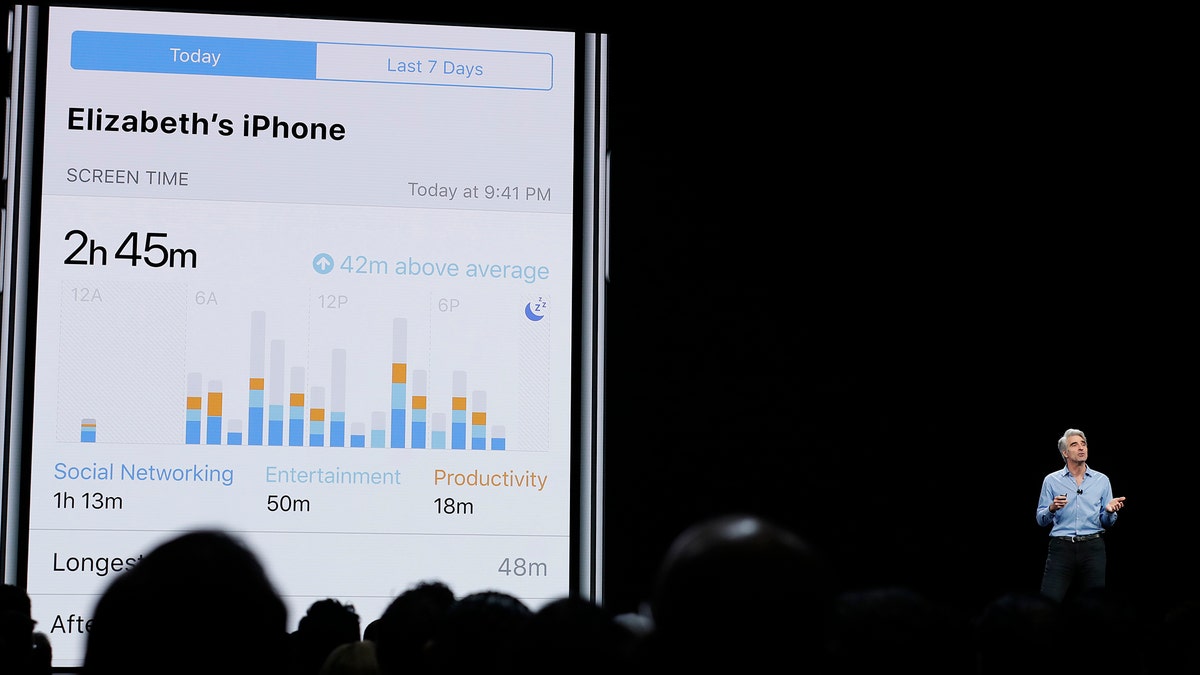
Craig Federighi, Apple's senior vice president of Software Engineering, speaks about screen time during an announcement of new products at the Apple Worldwide Developers Conference Monday, June 4, 2018, in San Jose, Calif. (AP Photo/Marcio Jose Sanchez)
Apple today unveiled new features coming in that are intended to protect its users' digital wellbeing.
In addition to new ways to group notifications, Apple's big announcement at its annual World Wide Developer's Conference (WWDC) was a monitoring app called Screen Time, which helps you keep track of and control device and app usage.
With Screen Time, users can view detailed Activity Reports (on a daily or weekly basis) on individual app usage, as well as more general information, such as the number of notifications received and the number of times a device was activated. Based on this data, individuals can set up time restrictions for specific apps, websites, or categories of apps.
More importantly, parents can access the same usage statistics for their children. Screen Time is account-based, so it will keep track of a child's activity across all iOS devices. Screen Time's scheduling feature will also allow parents to completely block their children from using their device for specific periods of time (like bedtime) or limit usage to just a handful of pre-approved ones, such as the Phone.
More From PCmag
With these latest announcements, Apple now offers a native set of parental control features competitive with many paid alternatives. Before this announcement, iOS already featured web filtering, app-blocking, and age-restriction capabilities. But third-party parental control apps tend to falter on iOS devices since Apple limits the device settings these apps can access, which is one advantage of Apple's built-in tools.
Many parental control services require parents to install a Mobile Device Management (MDM) profile on their child's device to enact any policies at all. The problem with this setup is that children can easily remove this profile (since it can't be password-protected) and that these apps do not offer the same amount of control over the device.
The features in iOS 12, then, should appeal to parents, especially at a time when tech addiction is becoming a more widely discussed topic for both adults and kids. Google recently announced its own efforts to curtail excessive device use, and offers an app for basic parental control functions, called Family Link. Still, you may prefer to use the same service across all of your children's devices, including mobile and desktop platforms, in which case you should check out our roundup of the best parental control services.
This article originally appeared on PCMag.com.








































